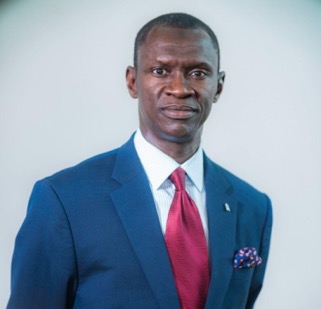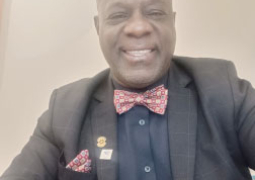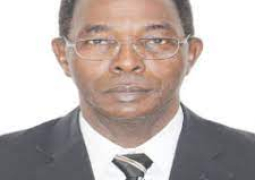
There are few betrayals more damaging to a nation than when those entrusted with public service become the architects of its decay. The Commissions of Inquiry into the activities of local government has revealed not merely severe administrative lapses or financial irregularities, but a systemic debasement of ethics and responsibilities at the hands of those who should know better.
At the centre of this crisis are not merely political actors, but professionals who have taken solemn oaths to uphold the public good, act in accordance with professional codes, and serve as guardians of national development. Instead, many stand accused of complicity in corruption, cronyism, conflicts of interest, and misappropriation of funds meant to uplift communities and empower citizens. This is what happens when professionals betray their oath.
This is not just a legal failure. It is a moral one. And it constitutes in the clearest terms, an act of being unpatriotic.
Corruption in public institutions is not new. What makes it particularly subversive in this case is the calibre of people involved, professionals whose education, status, and training demand higher standards. When the very custodians of accountability and governance manipulate and compromise public funds and abuse public trust, it signals a deeper sickness in the conscience of the nation.
Yet perhaps even more dangerous than the acts of corruption themselves is our selective moral outrage. We frequently and fervently point fingers at “the government,” at the “President,” and at “politicians,” as if corruption begins and ends at State House. But we say nothing and do nothing when the same corruption is committed by a friend, a relative, a colleague, or a professional we admire.
We sit next to them at events, praise them in our communities, hire them in our offices, and avoid confrontation in the name of respect, loyalty, or fear. This silence is complicity. Corruption does not only live in politics, but it also thrives in the networks of silence that protect corrupt individuals from scrutiny simply because they are “our people.”
Former U.S. President Barack Obama once stated, “Africa does not need strongmen, it needs strong institutions.” But institutions cannot be strong when the professionals who operate them are compromised, when accountants ignore ethics, when lawyers bend rules, and when citizens only demand accountability from the top, but never from within.
We must ask ourselves, what is the purpose of railing against a failed state if we are too timid to call out a corrupt cousin, or too comfortable to confront a lawyer who manipulates public contracts? The disease is not just at the top. It is among us, beside us, and often within us.
The legal profession, in particular, bears a heightened responsibility in moments like this. As officers of the court, lawyers are not merely private advisors, they are custodians of justice and the rule of law. A lawyer who facilitates, overlooks, or benefits from corruption is not just unethical, they are dangerous.
Lord Acton’s timeless warning echoes here “Power tends to corrupt, and absolute power corrupts absolutely.” But when power is combined with professional silence, societal apathy, and the decline of public accountability, the damage becomes generational.
What we have witnessed is not just corruption, but a betrayal of potential. The very individuals who should be strategising on how to grow the local economy, create jobs, attract investments, improve public services, and support the next generation, are the very ones using public office to extract personal gain.
We must be clear that patriotism is not about waving flags or reciting slogans and national anthems. It is about using one’s skills, authority, and opportunity to build the nation, not bleed it. True patriotism is silent, selfless service. It is saying no to a shady deal. It is resigning when principles are compromised. It is calling out wrongs, even when the wrongdoer is a friend, a colleague, or a superior.
Former UN Secretary-General Kofi Annan once noted, “Corruption is an insidious plague that has a spectrum of harmful effects on societies… it undermines democracy and the rule of law, leads to violations of human rights, distorts markets, and erodes the quality of life.” What we have seen in these municipal councils is the degradation of public life. And unless treated with seriousness and consequence, it will metastasise.
The tragedy is not just that corruption occurred. The greater tragedy is that it was normalised, made to look like business as usual. Procurement shortcuts, non-vetted contracts, irregular allowances, questionable payments and business transactions, nepotistic hiring. All of it conducted under the quiet assumption that no one is watching, and no one will care.
But Gambians are watching. The young are watching. And history will not forget.
Again, quoting former U.S. Supreme Court Justice Louis Brandeis who once said, “Sunlight is said to be the best of disinfectants.” This Commission’s findings are a form of sunlight. But sunlight alone is not enough. What follows must be accountability, institutional reform, and a culture of intolerance toward misconduct, not just in politics, but in every profession.
Where are the guardians of professional integrity and accountability? Where is the ethical scrutiny of those is positions of trust who exploit the system for self - enrichment.
The failure is not just individual. It is structural. It is institutional. It is cultural. But it is not irreversible.
We must urgently restore pride to public service, not through new slogans, but through firm consequences, transparent recruitment, zero tolerance for conflict of interest, and real-time citizen engagement in governance.
The time has come for professional integrity to matter again. For patriotism to be measured by what one contributes, not what one extracts. For young Gambians to look at their leaders and mentors and see examples worth emulating, not scandals worth avoiding. And by leaders, I mean anyone in a position of influence and responsibility, whether at home, in the workplace, or in society at large and not just those in political office.
The moral philosopher Edmund Burke said, “The only thing necessary for the triumph of evil is for good men to do nothing.” In this moment, we must not do nothing. The local government inquiries have exposed more than wrongdoing. They have exposed who we are, and who we risk becoming, if we do not act.
Let us choose differently. Let us insist on a Gambia where public office is not a feeding trough, but a sacred trust. Where professionals are not predators, but protectors of the people. Where leadership in our institutions is not a tool of extraction, but a duty of service.
The path forward begins with truth. And truth, no matter how inconvenient, is the foundation upon which national renewal must be built.
About the Author
Omar FaFa M’Bai is a Legal Practitioner, an advocate for good governance, and a parent. He writes regularly on institutional integrity, leadership, and education across Africa, Middle East and Asia.



